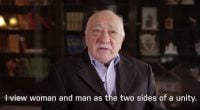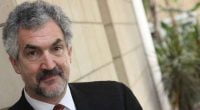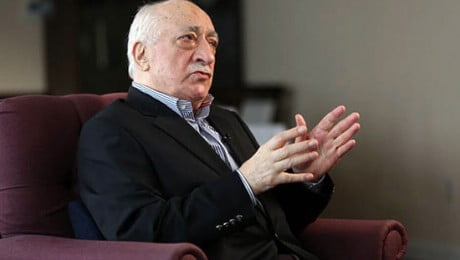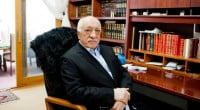Keyword: Fethullah Gulen

Fethullah Gulen’s Message of Condemnation and Condolences for St. Petersburg Terrorist Attack
Fethullah Gulen: I strongly condemn the brutal terrorist attack Monday on the metro in St. Petersburg, Russia, which cost the lives of 11 people and injured dozens more. Words fail to express my sorrow at the loss of innocent lives and suffering of their loved ones.

UK Parliament: No evidence that Gülen, movement behind coup attempt
Contrary to accusations made by President Recep Tayyip Erdoğan and the Turkish government, the Foreign Affairs Committee of the UK Parliament has concluded that Fethullah Gülen and the movement he inspired as a whole were not behind a failed coup attempt in Turkey on July 15.

Fethullah Gulen’s Video Message for International Women’s Day
In different periods [women have] been limited to a life at home closed to the outer World. Sometimes tyrannical leaders have isolated them and prevented them from participating actively in social life. Hence, they experienced various forms of deprivation.

Gulen has ‘no intention of leaving the US’
The Alliance for Shared Values “rejects the accusation” by Turkish Deputy Prime Minister Numan Kurtulmus that Gulen is planning a move to Canada, it said in a statement on its website. The Alliance also reiterated its call for an end to attempts to stymie voices of democratic dissent, including journalists, academics, Kurds, liberals and participants in the Hizmet movement.

Erdoğan’s accusation that Hizmet organized the coup attempt is noxious and absurd
The name of that “terrorist organization” was not spoken, but Ökem was referring to the so-called Fethullahçı Terör Örgütü. To the rest of the world, it’s the Hizmet movement founded by Fethullah Gülen, a former close and important ally of Erdoğan. No one else sees it as violent. Erdoğan’s accusation that it organized the coup attempt is noxious and absurd.

Top Three Reasons Why Turkey’s President Erdogan is Obsessed with Gulen
Why is the president of a country of 75 million so obsessed with pursuing a retired preacher who has been living in the U.S. since 1999? There are three main reasons for Erdogan’s obsession with Gulen: First, a desire to cover up massive and systemic corruption; second, the need for control over civic leaders and third, his need for a scapegoat to blame the country’s troubles and justify his authoritarian drive.

Portrait of the Gülen Brotherhood, sworn enemy of Turkey’s President Erdogan
Some are answered by a confidential document produced by the European Union Intelligence and Situation Centre (INTCEN). Nevertheless, its authors feel that the Gülen movement is not behind the coup attempt. There is no evidence that the army (…) and the Gülenists (…) had had any intention to cooperate in overthrowing Erdogan, they say.

Gülen says he could be blamed for assassination of an MHP, CHP politician
US-based Turkish Islamic scholar Fethullah Gülen said on Monday that the possible assassination of an important politician from either the Republican People’s Party (CHP) or the Nationalist Movement Party (MHP) in the coming days might be blamed on him by pro-government circles.

Erdogan plotted Turkey purge before coup, say Brussels spies
The European intelligence contradicts the Turkish government’s claim that exiled cleric Fethullah Gulen was behind the plot to overthrow the Turkish government. Ankara is seeking Mr Gulen’s extradition from the US. The huge wave of arrests was already previously prepared.

My Meeting With Fethullah Gülen, the Man Accused of Plotting Turkey’s Coup
I saw the simple room in which he lives, adjacent to the room in which we met: a mattress on the floor, a prayer rug, a few books, and a reading table. Everything I knew before the meeting was confirmed that hour: This man is not the kind of person who would (or even could) plan a coup.

Talking with the “Religious Terrorist” that Turkey Wants Trump to Extradite
Regardless of the threat Gulen poses as the purported leader of an international apparatus, any movement is a threat in that it is not easily controlled. If Gulen is right, and Erdogan fears anything that he cannot control, then the Gulen movement with its critical stance towards what it regards as abuses of the public trust, must seem threatening indeed.

Gülen worries fake news could associate new terror attacks, assassinations in Turkey with him
US-based Turkish Islamic scholar Fethullah Gülen said on Tuesday that fabricated stories in the pro-government media about new terror attacks and political assassinations in Turkey could be associated with followers of the faith-based Gülen movement.

Erdoğan and Gülen: The Marriage of Convenience
Religiously, the Gülen Movement both reflects the long tradition of Turkish Sufi brotherhoods, and Gülen’s own emphasis on societal change through education, humanitarian activism, and interfaith dialogue. Gülen never sympathized with, or adopted, the AKP’s more conservative form of political Islam.



















